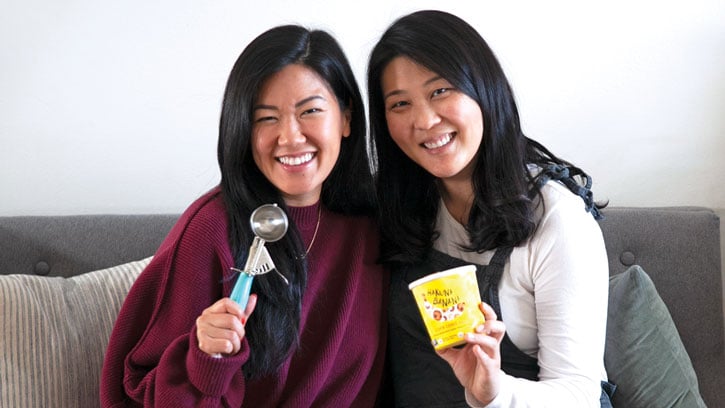Converting Personal Passion Into a Successful Business Venture
STARTUPS & INNOVATORS
Smarts, timing, and capital each can be enough on its own to launch a startup toward success. But maybe the most promising factor for a fledgling food or beverage company is the founder’s dietary passions for himself or his family.
Whether an entrepreneur has gotten her start because she wanted an effective probiotic product for gut health, ketogenic foods to fit an overall lifestyle, allergen-free innovations for snacking, or a healthful option for her children, the compulsion to start a company to answer an entrepreneur’s own dietary needs and concerns can take the enterprise a long way.
“Passion for a product is kind of what drives a successful business,” says Natalie Shmulik, CEO of The Hatchery, a food-startup incubator in Chicago. “To get that, there’s usually a real problem that you’re trying to solve. That’s versus people who just create problems to solve. That’s not passion; that’s just trying to make a buck.”
Kurt Seidensticker was a NASA engineer who developed Vital Proteins, America’s No. 1 brand of collagen supplements, as he tried to find ways to ease his joint pain from working out. After just five years on store shelves, Vital Proteins had become at least a $100 million brand and, in June, was purchased by Nestlé.
As a finance executive in Japan, Matthew de Bord developed a passion for seaweed-based wraps and then launched a veggie-based wrap company, NewGem Foods, after he returned to the United States.
Will Nitze was a software salesman working long hours under what he calls a “mental fog” that he suspected had to do with his “standard American diet.” Fortunately, he also is a Harvard neuroscience graduate, so in 2017 he came up with IQBar, which has a recipe that includes about 6 grams per bar of purported brain-boosting ingredients, including lion’s mane and curcumin; it’s now for sale at 5,000 CVS and Kroger stores, and more.
And surfing icon Laird Hamilton and his wife, Gabriella Reese, an ex-Olympic volleyball player, wanted to share their personal dietary regimen with other physically active consumers. So they launched Laird Superfood with a product line that includes plant-based creamers, mushroom-infused coffees, and Activate Daily Jumpstart powder that blends freeze-dried lemon, ginger, cayenne, and lucuma and is meant to be stirred into water as the first beverage of the day.
Hannah Hong and Mollie Cha started Hakuna Brands after trying in vain to find satisfying desserts that they could eat despite their lactose intolerance. “We experimented a lot,” says Hong. “One day Mollie made something by putting frozen bananas in a food processor and whipping them into the texture of ice cream. We tried adding cocoa powder and other stuff, and it was incredible. It was our lightning-strike moment.”
Hong and Cha started their company in Los Angeles in 2016 with Hakuna Banana nondairy “nice cream” and have added an oat milk–based line, Tote Oats, as well. To chase their dietary passion, it helped that both had held jobs in product innovation for Bolthouse Farms, which gave them insights into food success and failure. “I instinctively knew that if this is a need I had, this was a need other people had,” Hong says.
Shazi Visram realized there was a need for a truly nutritious commercial baby food in 2003 when she saw the frustration that her friend, a new mom of twins, experienced trying to find healthy options. She launched Happy Family Organics with a line of organic fruit and vegetable purees in pouches. A few years later, Visram gave birth to her own son, Zane, whose regressive autism helped motivate her to expand to toddlers’ food. Sales exploded, the brand extended, imitators copied the concept, and in 2013, Danone bought her out.
In a way, Visram has moved on, recently establishing a new, comprehensive line of baby-care products called HealthyNest. But she’s still chairperson of Happy Family because the company represents an important extension of her interests.
“My personal passion to develop Happy Family as the brand it is today, and the products that fulfill the brand promise, continue to be the heartbeat of the brand,” Visram says. “It still allows the team to rally around a true north that we can very much agree on for our mission and our reason for being.”


